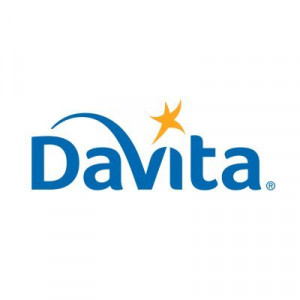1. Meets or exceeds patient care requirements by coordinating the operations within the Department.
- Serves as a clinical expert in the assessment of the patient population.
- Serves as a patient advocate.
- Demonstrates high skill in patient education.
- Communicates with other health care team members and departments to meet patient care requirements.
- Monitors adherence to policy and procedure to ensure safety of patients and staff.
- Assists in maintaining equipment and outdated supplies for patient care. Report malfunctioning equipment to appropriate personnel. Re-order supplies as needed.
- Keeps management informed of patient care and staff issues.
2. Problem-solves and makes decisions within areas of accountability by using a well-defined approach to ensure effective and efficient patient care.
- Prioritize tasks; patient scheduling, referrals, staffing, quality or other operational issues in changing environment.
- Keep patient needs in the forefront when evaluating alternatives.
- Use good judgment when making independent decisions.
- Negotiate effectively while maintaining positive relationships.
- Serve as a resource for staff in solving clinical, regulatory and operations issues.
- Listen effectively and processes key information.
- Promote trust with open and effective communication.
- Communicate organizational management decisions in a positive manner.
- Recognize impacts of decisions made.
- Participate in quality and process improvement initiatives for the department.
3. Utilize the nursing process, for the performance of patient care, to assess, plan, intervene, and evaluate patient care to achieve prioritized patient outcomes according to the RN scope of practice in collaboration with regulations.
- Perform complete admission assessment.
- Perform comprehensive nursing assessments in an efficient and effective manner.
- Conduct full body system analysis.
- Administer and performs nursing assessment in accordance with the applicable patient type.
- Develop a comprehensive plan of care according to assessment.
- Review, discusses and implements health care provider orders appropriately and takes appropriate measures if there are questions.
- Recognize abnormal symptoms/changes in patient condition, establishes priorities and takes appropriate action.
- Evaluate patient progress toward desired outcomes prior to discharge or release.
- Demonstrate personal accountability in the delivery of patient care in a competent, professional and compassionate manner.
- Provide intravenous interventions.
4. Collaborate with healthcare providers to coordinate medical and nursing management of patient care.
- Promote team concept through effective communication regarding patient condition, patient care plan and patient satisfaction with appropriate individuals that are involved in the patient’s care.
- Work effectively with ancillary areas as part of the team approach to patient care.
- Direct patient support team members effectively and appropriately.
- Demonstrate initiative and flexibility in the provision of patient care.
- Inform and involves Manager regarding patient care issues in a timely and appropriately manner.
- Assist in making patient assignments, coordinating admissions, and meeting staffing needs for patient visits.
- Collaborate with the Care Plan team.
5. Perform emergency treatment as required in accordance with RN scope of practice.
- Initiate or assist in patient care in an effective and responsive manner as each situation requires.
- Triage each emergency situation appropriately and involves other resources as appropriate.
- Administer and performs emergent care in accordance with the applicable patient population type which may range from newborn to geriatrics.
- Follow emergency policies, procedures and protocols in an effective manner.
6. Performs and maintains documentation.
- Document accurate and ongoing assessments of patient status that reflect nursing interventions, patient responses, patient teaching and status of outcomes at discharge.
- Perform quality assurance reviews as assigned and documents.
- Complete patient call-back education calls and documents as assigned.
7. Communicates effectively.
- Communicate and collaborate effectively with other health team members regarding patient condition, nursing plan of care, patient satisfaction needs and recommendations for meeting identified outcomes.
- Provide appropriate and specific information to on-call nurse of patient’s condition, change in plan of care of updated physician orders.
- Identify and recognize abnormal symptoms/changes in patient condition, established priorities, and takes appropriate action.
- Appropriately reports condition changes and plan of care to medical provider and implements physician orders according to policy.
8. Promotes and ensures patient and staff safety in all aspects of responsibilities.
- Administer medications, treatments and procedures in a timely and safe manner according to health care provider orders and nursing policy, including appropriate performance of standard precautions, using two patient identifiers, and completes the medication reconciliation/regimen review with each patient visit and during interdisciplinary team meetings. Any updates/changes to the medications are communicated to the medical provider.
- Utilize proper body mechanics; transfer/lifting techniques to minimize fall risk to patient and injury to self.
- Implement infectious disease controls as appropriate including isolation procedures, proper use of hand washing and gloves.
- Follow proper procedures for wasting narcotics and disposal of sharps and hazardous materials according to policy. Documentation of narcotic waste is completed.
9. Performs other duties as assigned.









